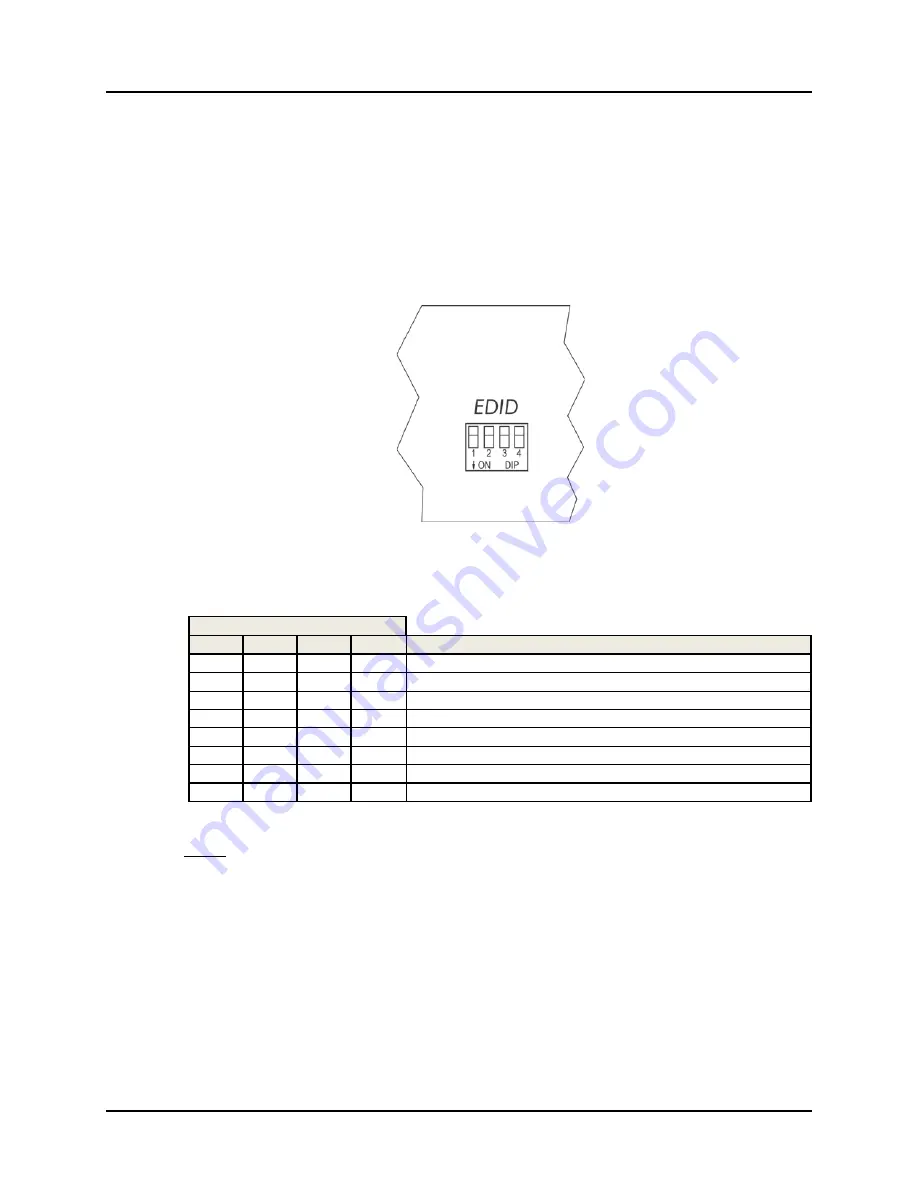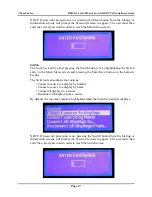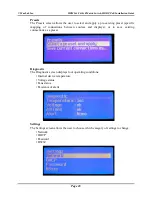
© MuxLab Inc.
HDMI 4x8 & 8x8 Matrix Switch, HDBT, PoE Installation Guide
3.9.
EDID and DIP Switch Settings
Every digital display has extended display identification data (EDID) that describes its
capabilities to a video source. This enables the source to know which type of display is
connected to it, and to send compatible signals to that display.
The EDID settings of any display can be relayed to any source by means of a DIP
switch located on the back panel of the Matrix Switch (Figure 12). The DIP switch has
three contacts (1, 2, 3, 4), each of which can either be set up (OFF) or down (ON).
Figure 12: EDID DIP Switch (Back Panel)
Various DIP switch settings enable the user to relay any display’s EDID to any source.
Table 5 shows 8 pre-defined DIP switch settings and the function of each.
EDID Contact
1
2
3
4
Function
OFF
OFF
OFF
OFF Variable EDID: Relays EDID of display to selected source
1
OFF
OFF
ON
OFF Fixed EDID: 1080p 3D stereo
2
OFF
ON
OFF
OFF Fixed EDID: 1080p stereo
2
OFF
ON
ON
OFF Fixed EDID: 1080i stereo
2
ON
OFF
OFF
OFF Fixed EDID: 1080p 5.1
2
ON
OFF
ON
OFF Fixed EDID: 1080P 7.1
2
ON
ON
OFF
OFF [Reserved]
ON
ON
ON
OFF [Reserved]
Table 5: DIP Switch Settings
Notes:
1.
To relay the EDID of display
x
to source
y
, the user can use the console terminal or
Web Interface.
2.
Selected fixed EDID will be active only after a power cycle of the Matrix Switch.
Page 26
















































